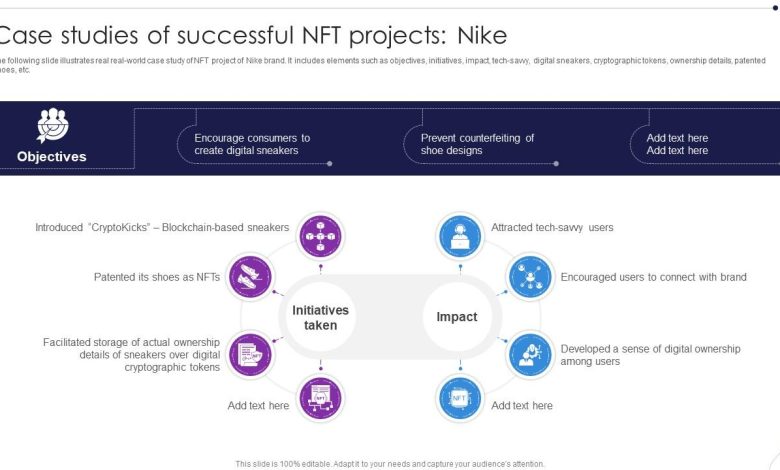Case Studies of Successful Tokens

- Introduction to Tokenization
- Key Factors for Token Success
- Case Study: Ethereum
- Case Study: Binance Coin
- Lessons Learned from Successful Tokens
- Future Trends in Tokenization
Introduction to Tokenization
Tokenization is a process that converts rights to an asset into a digital token on a blockchain. This allows for fractional ownership and increased liquidity of traditionally illiquid assets. By tokenizing assets, investors can buy and sell fractions of assets, making it easier for a wider range of investors to participate in the market.
Tokenization has gained popularity in recent years due to its ability to democratize access to investments and streamline the trading process. Successful tokenization projects have demonstrated the potential for increased efficiency, transparency, and security in asset trading.
Through case studies of successful tokens, we can gain insights into the benefits and challenges of tokenization. These case studies provide real-world examples of how tokenization has transformed various industries and opened up new opportunities for investors.
Key Factors for Token Success
When analyzing successful tokens, it is crucial to identify the key factors that contribute to their success. These factors play a significant role in determining the viability and sustainability of a token project. Some of the key factors for token success include:
- Strong Community Support: A thriving community is essential for the success of a token. Engaged community members can help promote the token, provide valuable feedback, and contribute to its growth.
- Utility and Value Proposition: Tokens that offer real utility and solve a specific problem tend to be more successful. A clear value proposition can attract investors and users to the token.
- Transparency and Trust: Transparency in the token project, team, and roadmap builds trust among investors and users. Trust is crucial for the long-term success of a token.
- Strategic Partnerships: Collaborating with other projects, companies, or influencers can help increase the visibility and adoption of a token. Strategic partnerships can also provide access to new markets and resources.
- Effective Marketing and Communication: A well-thought-out marketing strategy and clear communication can help raise awareness about the token and attract a wider audience. Effective marketing can drive adoption and increase demand for the token.
By focusing on these key factors, token projects can increase their chances of success in the competitive cryptocurrency market. It is essential to prioritize community engagement, utility, transparency, partnerships, and marketing to create a strong foundation for a successful token.
Case Study: Ethereum
Ethereum is a prominent example of a successful token that has made a significant impact in the world of cryptocurrency. Launched in 2015, Ethereum quickly gained popularity due to its innovative approach to smart contracts and decentralized applications (dApps).
One of the key factors that contributed to Ethereum’s success was its ability to provide a platform for developers to create their own tokens and dApps. This flexibility attracted a wide range of projects to the Ethereum network, leading to a vibrant ecosystem of decentralized applications.
Another crucial aspect of Ethereum’s success was its strong community support. The Ethereum community is known for its active participation in the development and governance of the platform, which has helped to foster trust and credibility among users and investors.
Furthermore, Ethereum’s scalability and security features have also played a significant role in its success. The platform has been able to handle a large number of transactions efficiently, while also implementing robust security measures to protect user funds and data.
Overall, Ethereum’s success can be attributed to its innovative technology, strong community support, and robust security features. As one of the leading tokens in the cryptocurrency space, Ethereum continues to pave the way for the future of decentralized finance and applications.
Case Study: Binance Coin
Binance Coin (BNB) is a cryptocurrency that was created by the popular cryptocurrency exchange Binance. BNB has gained significant popularity and success since its launch, becoming one of the top cryptocurrencies in terms of market capitalization.
One of the key factors contributing to the success of Binance Coin is its utility within the Binance ecosystem. BNB can be used to pay for trading fees on the Binance platform, as well as for various other purposes such as participating in token sales on Binance Launchpad. This utility has helped drive demand for BNB and has contributed to its value appreciation over time.
Another factor that has contributed to the success of Binance Coin is the strong reputation and credibility of the Binance exchange. Binance is known for its robust security measures, user-friendly interface, and wide range of cryptocurrency offerings. This has helped instill trust in Binance Coin among investors and traders, leading to increased adoption and usage of the cryptocurrency.
In addition to its utility and the reputation of the Binance exchange, Binance Coin has also benefited from strategic partnerships and collaborations. Binance has formed partnerships with various companies and projects in the cryptocurrency space, helping to expand the use cases and reach of BNB. These partnerships have helped increase the visibility and value of Binance Coin, further solidifying its position as a successful cryptocurrency.
Overall, the success of Binance Coin can be attributed to its utility within the Binance ecosystem, the reputation of the Binance exchange, and strategic partnerships and collaborations. These factors have helped drive demand for BNB and have contributed to its growth and success in the cryptocurrency market.
Lessons Learned from Successful Tokens
When analyzing successful tokens, there are valuable lessons that can be learned to apply to future projects. One key takeaway is the importance of building a strong community around the token. Engaging with users, listening to their feedback, and fostering a sense of belonging can help drive adoption and increase the token’s value over time.
Another lesson learned from successful tokens is the significance of having a clear and compelling use case. Tokens that serve a specific purpose or solve a real-world problem tend to perform better in the market. It is essential to clearly communicate the utility of the token to investors and users to gain their trust and support.
Furthermore, successful tokens often prioritize security and compliance. Implementing robust security measures and adhering to regulatory requirements can help build credibility and trust among stakeholders. By prioritizing security, tokens can mitigate risks and attract more investors.
Additionally, successful tokens focus on innovation and staying ahead of the curve. By continuously evolving and adapting to market trends, tokens can remain competitive and relevant in the ever-changing cryptocurrency landscape. Embracing new technologies and exploring new opportunities can help tokens differentiate themselves from competitors.
In conclusion, studying successful tokens can provide valuable insights for future token projects. By focusing on community building, having a clear use case, prioritizing security and compliance, and fostering innovation, tokens can increase their chances of success in the market. By applying these lessons learned, token creators can set themselves up for a brighter future in the cryptocurrency space.
Future Trends in Tokenization
Looking ahead, the future of tokenization is promising, with several trends emerging that are set to shape the industry. One key trend is the increasing adoption of security tokens, which offer investors a more regulated and secure way to invest in assets. Security tokens provide greater transparency and compliance, making them an attractive option for both issuers and investors.
Another trend to watch is the rise of tokenized real estate, where properties are represented as digital tokens on a blockchain. This innovation allows for fractional ownership of real estate assets, making it easier for investors to diversify their portfolios and access new investment opportunities. Tokenization of real estate also streamlines the buying and selling process, reducing costs and increasing liquidity.
Furthermore, the integration of non-fungible tokens (NFTs) into the tokenization space is gaining momentum. NFTs represent unique digital assets, such as art, collectibles, and virtual real estate, and have the potential to revolutionize ownership and trading of digital assets. The use of NFTs in tokenization opens up new possibilities for creators and investors alike, creating a more inclusive and diverse marketplace.




